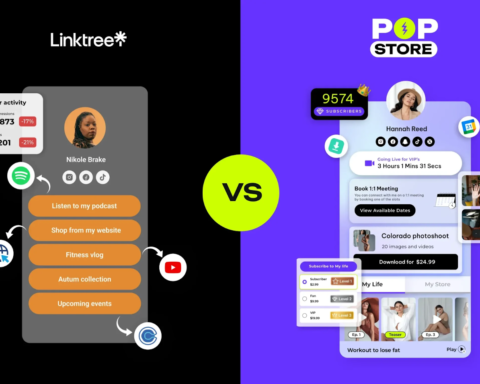The story of Jacob Widman is one that perplexes and challenges our understanding of justice, mental health, and redemption. Widman, a New York native, was thrust into the public spotlight following a heinous act committed in 1986 when, at the age of 16, he murdered his summer camp roommate, Eric Kane. This seemingly senseless act of violence shocked the nation, especially given Jacob’s privileged upbringing. Widman’s life took a dramatic turn as he faced the consequences of his actions and navigated the complexities of the American criminal justice system. This article explores Jacob Widman’s life, the tragic crime he committed, the legal battles that followed, and the broader implications of his case for the justice system, mental health, and rehabilitation.
Early Life and Background
Jacob Widman was born into a family of intellectuals in New York City. His father, John Edgar Widman, was a well-known author whose work often explored themes of race, violence, and the American experience. Growing up in an environment that emphasized education, culture, and societal responsibility, Jacob had access to privileges that many could only dream of. Despite these advantages, Jacob’s life was far from ideal. He struggled with personal demons, which would ultimately come to light in the most tragic of ways.
The pressures of his environment, combined with internal struggles, may have contributed to Jacob’s downward spiral. As a teenager, Jacob exhibited signs of emotional detachment, introspection, and a certain level of isolation. These characteristics, though subtle, hinted at deeper psychological issues that would eventually manifest in the violent act that would define his life.
The Crime that Shook New York
In 1986, Jacob Widman attended a summer camp in Arizona. The camp was meant to be an enriching experience—a chance for Jacob to grow and bond with peers. Instead, it became the site of a senseless murder. On a quiet night, while his roommate, Eric Kane, was asleep, Jacob stabbed him twice in the chest, killing him instantly.
The crime was shocking, not only because of its brutality but also because of Jacob’s privileged background. How could a young man with every opportunity in life, a supportive family, and access to the best resources commit such a violent act? This question lingered in the public’s mind, fueling debates about the root causes of the crime. Was it a result of a broken psyche, a momentary lapse in judgment, or something more deeply rooted in his upbringing and mental state?
Psychological Struggles and the Question of Motive
Perhaps the most perplexing aspect of Jacob Widman’s case is the lack of a clear motive. Throughout the investigation and trial, no one could definitively explain why Jacob killed Eric Kane. There were no signs of a prior conflict, no history of animosity, and no apparent reason for the violence. This ambiguity has led to a range of speculations.
Some experts have suggested that Jacob’s psychological struggles played a significant role in the crime. His introspective nature, combined with the pressure of living up to his family’s expectations, may have contributed to his emotional turmoil. Additionally, the influence of his father’s literary works—many of which dealt with dark and complex themes of violence and human nature—could have further shaped Jacob’s mindset in ways that were not immediately apparent. However, these remain speculative theories. The true cause of Jacob’s actions remains a mystery, leaving many to wonder if there were signs of deeper mental health issues that went unnoticed during his youth.
The Legal Battle: From Conviction to Parole and Back
Jacob Widman was convicted of second-degree murder and sentenced to life in prison, with the possibility of parole after 25 years. During his time in prison, Jacob reportedly engaged in various forms of rehabilitation. He earned multiple degrees, participated in therapy, and worked diligently to better himself. In 2016, after serving 30 years, Jacob was granted parole and released under strict supervision.
His parole, however, would not last. Just months after his release, Jacob’s parole was revoked due to a minor technical violation. He had failed to attend a scheduled doctor’s appointment, a seemingly trivial oversight. Yet, this led to his re-incarceration, igniting widespread outrage and sparking debate about the fairness of the justice system. Critics argued that Jacob was unfairly punished for a small mistake, and that the revocation of his parole was disproportionate to the violation.
This incident highlighted broader issues with the parole system and the ways in which minor infractions can result in the re-incarceration of individuals who have demonstrated significant progress toward rehabilitation. Many saw the decision as an example of a justice system that punishes rather than rehabilitates, particularly when it comes to those with mental health issues or a history of trauma.
Mental Health and Incarceration: A Life of Struggle
Throughout his time in prison, Jacob Widman struggled with a range of mental health issues, including depression, anxiety, and anger. The harsh realities of prison life likely exacerbated these conditions, making it more difficult for Jacob to maintain his emotional well-being. Despite these challenges, he tried to make the best of his situation by engaging in therapy and participating in educational programs aimed at helping him manage his mental health issues.
The revocation of his parole and his subsequent return to prison only worsened Jacob’s mental health. Having tasted freedom, the emotional toll of being sent back behind bars was immense. He expressed feelings of anger, frustration, and despair at being incarcerated once again. His case underscores the broader issue of how the justice system treats individuals with mental health challenges, especially those who have shown a willingness to reform.
The Ongoing Legal Battle
Jacob’s legal team has been fighting for his release since his parole was revoked. They argue that the decision to re-incarcerate him was unjust, particularly given that the violation was minor and that Jacob had made significant strides in his rehabilitation. His attorneys have presented evidence that Jacob was doing well on parole, had no history of violent behavior, and had complied with most of the conditions of his release.
Despite these efforts, the Arizona Board of Executive Clemency has maintained its stance, citing concerns about Jacob’s mental state and the potential risks he may pose to society. The victim’s family has also been vocal in opposing Jacob’s release, believing that he should serve his life sentence in prison. This ongoing legal battle highlights the difficulty in balancing the interests of public safety, justice, and rehabilitation.
Public Perception and Media Coverage
The case of Jacob Widman has received significant media attention, with some viewing him as a tragic figure and others as a dangerous individual who should never have been released. Media coverage has often focused on the sensational aspects of the case: Jacob’s privileged background, the brutality of the crime, and the dramatic legal battles. Yet, there is more to the story than these surface-level details.
At its core, the case is about mental health, justice, and the complex process of rehabilitation. Jacob’s struggle to overcome his past, coupled with the legal system’s treatment of him, raises important questions about how society should approach individuals who have committed serious crimes, especially when they have made efforts to reform themselves.
The Broader Implications
Jacob Widman’s case has far-reaching implications for the American criminal justice system. It brings into focus the challenges faced by those seeking rehabilitation after long periods of incarceration. The difficulty of reintegrating into society, especially for those with mental health struggles, is a central theme in this case. It also raises questions about the fairness of parole systems, particularly when minor infractions can lead to the revocation of parole and the continuation of punishment.
Moreover, the case underscores the need for a more compassionate and individualized approach to justice—one that considers each person’s unique circumstances and the progress they have made toward rehabilitation. As Jacob’s legal team continues its fight for his release, his case serves as a reminder that justice should be more than just punishment; it should also be about the opportunity for redemption and a second chance.
Conclusion
The case of Jacob Widman is a tragic and complex story, one that has captured public attention and sparked debate on a range of issues, including mental health, justice, and rehabilitation. While the crime he committed cannot be undone, his efforts to reform himself in prison and his continued struggle for freedom highlight the challenges faced by individuals who seek to overcome their past and rebuild their lives. Whether Jacob will ever regain his freedom remains uncertain, but his case will undoubtedly continue to raise important questions about the nature of justice, the potential for rehabilitation, and the role of the criminal justice system in supporting those who have served their time.
Facts:
- Jacob Widman’s Background: Born in New York City into a family of intellectuals, Jacob’s father, John Edgar Widman, was a prominent author, known for exploring themes like race, violence, and human nature in his works.
- The 1986 Crime: At 16, Jacob Widman committed a violent crime by killing his summer camp roommate, Eric Kane, in Arizona. The murder shocked the nation due to Jacob’s privileged upbringing and seemingly lack of a clear motive.
- Conviction and Sentence: Jacob was convicted of second-degree murder in 1987 and sentenced to life in prison with the possibility of parole after 25 years.
- Rehabilitation Efforts: While incarcerated, Jacob participated in educational programs, earned degrees, and sought therapy for his mental health issues. His progress led to his parole in 2016 after serving 30 years.
- Parole Revocation: Just months after his parole, Jacob’s release was revoked for a minor infraction—a missed doctor’s appointment—leading to his re-incarceration. This sparked public debate over parole systems and fairness in the justice process.
- Mental Health Struggles: Throughout his imprisonment, Jacob struggled with depression, anxiety, and anger, which were exacerbated by prison conditions. His mental health struggles played a significant role in his legal battles and public perception.
- Ongoing Legal Battles: Jacob’s legal team continues to fight for his release, arguing that the revocation of parole was unjust. The Arizona Board of Executive Clemency has maintained concerns about Jacob’s mental health, while the victim’s family opposes his release.
FAQs:
1. Who is Jacob Widman?
Jacob Widman is a New York native who was convicted of second-degree murder for killing his summer camp roommate, Eric Kane, in 1986. He spent over 30 years in prison and was granted parole in 2016 but had his parole revoked shortly after due to a minor infraction.
2. Why did Jacob Widman kill Eric Kane?
The motive behind Jacob Widman’s crime remains unclear. There was no prior conflict or animosity between the two, and no apparent reason for the violence, leading to speculation that Jacob’s psychological struggles may have contributed to the crime.
3. What happened after Jacob Widman was released on parole?
Jacob was granted parole in 2016 after serving 30 years in prison but was reincarcerated shortly thereafter for failing to attend a scheduled doctor’s appointment. This decision sparked controversy, as critics felt the violation was minor compared to the progress he had made in his rehabilitation.
4. What mental health issues did Jacob Widman struggle with?
During his time in prison, Jacob dealt with depression, anxiety, and anger. These conditions were exacerbated by the harsh realities of prison life, and his mental health struggles have been a significant factor in his legal battles.
5. What is the current status of Jacob Widman’s case?
Jacob’s legal team is fighting for his release, arguing that the revocation of his parole was unjust. The Arizona Board of Executive Clemency has yet to grant his release, citing concerns about his mental state, while the victim’s family opposes his freedom.
6. How does Jacob Widman’s case raise broader questions about the criminal justice system?
The case highlights issues with the fairness of parole systems, particularly when minor infractions lead to re-incarceration. It also prompts a discussion about the challenges of rehabilitating individuals with mental health issues and the difficulties they face in reintegrating into society after prison.
Stay connected for the latest news and updates on essentialtribune.com






